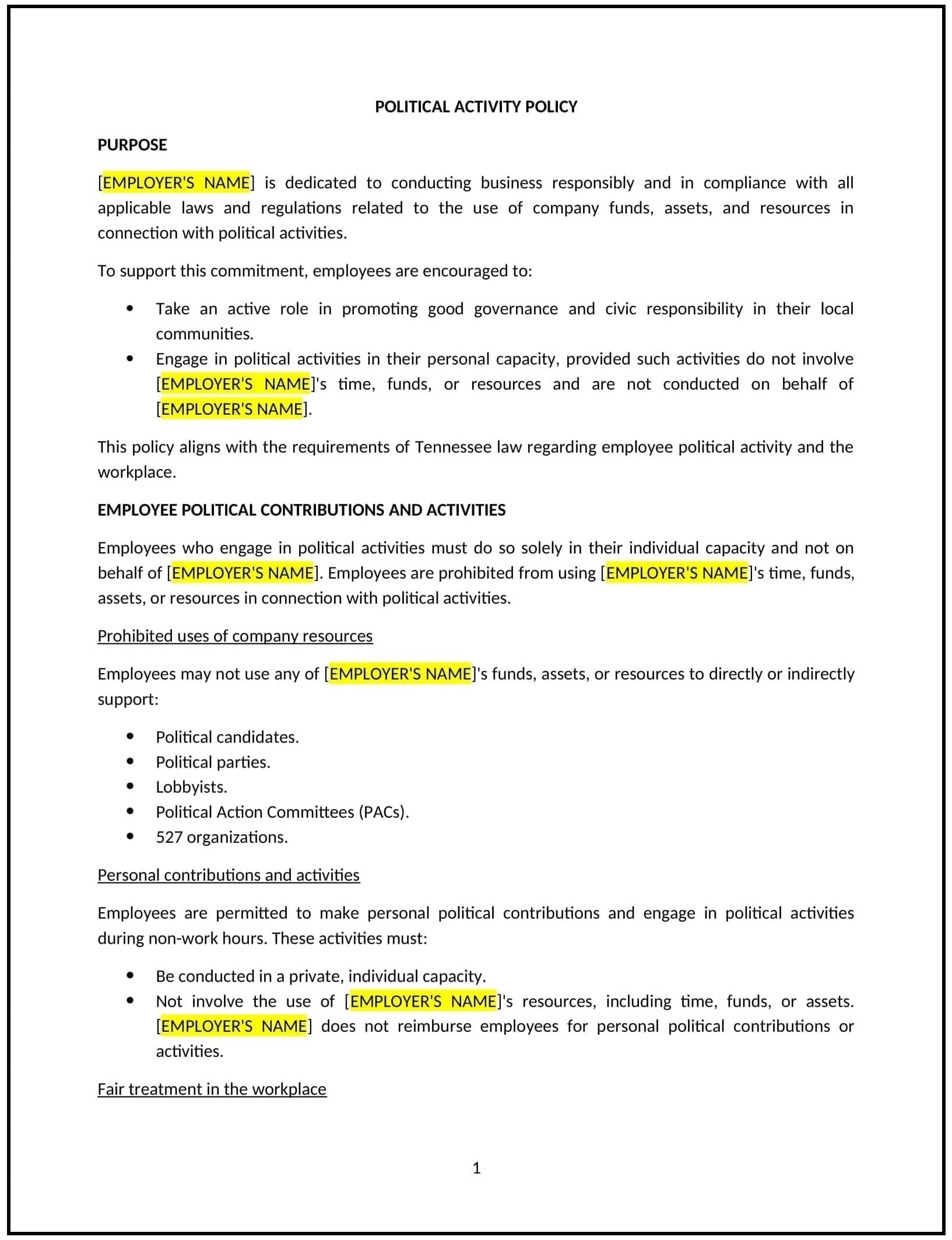Political activity policy (Tennessee): Free template
Got contracts to review? While you're here for policies, let Cobrief make contract review effortless—start your free review now.

Customize this template for free
Political activity policy (Tennessee)
This political activity policy is designed to help Tennessee businesses establish guidelines for employees engaging in political activities, such as campaigning, fundraising, or running for office. It outlines procedures for ensuring that political activities do not interfere with work responsibilities or the business’s interests.
By adopting this policy, businesses can protect their reputation, maintain productivity, and ensure compliance with state and federal laws.
How to use this political activity policy (Tennessee)
- Define political activities: Clarify what constitutes political activity, such as campaigning, lobbying, or running for office.
- Set workplace rules: Specify whether political activities are allowed during work hours or using company resources.
- Address conflicts of interest: Outline steps for identifying and resolving potential conflicts, such as endorsing candidates or parties.
- Train employees: Educate staff on the policy and their responsibilities regarding political activities.
- Review and update: Assess the policy annually to ensure it aligns with evolving business needs and legal requirements.
Benefits of using this political activity policy (Tennessee)
This policy offers several advantages for Tennessee businesses:
- Protects reputation: Ensures political activities do not harm the business’s public image.
- Maintains productivity: Reduces disruptions caused by political activities during work hours.
- Enhances transparency: Provides clear guidelines for employees regarding political engagement.
- Reduces risks: Minimizes the potential for conflicts of interest or legal disputes.
- Aligns with best practices: Supports a structured approach to managing political activities.
Tips for using this political activity policy (Tennessee)
- Communicate the policy: Share the policy with employees and include it in the employee handbook.
- Provide training: Educate staff on the policy and their responsibilities regarding political activities.
- Monitor compliance: Regularly review political activity disclosures and address potential conflicts promptly.
- Address issues promptly: Take corrective action if political activities interfere with work responsibilities or business interests.
- Update regularly: Assess the policy annually to ensure it aligns with evolving business needs.